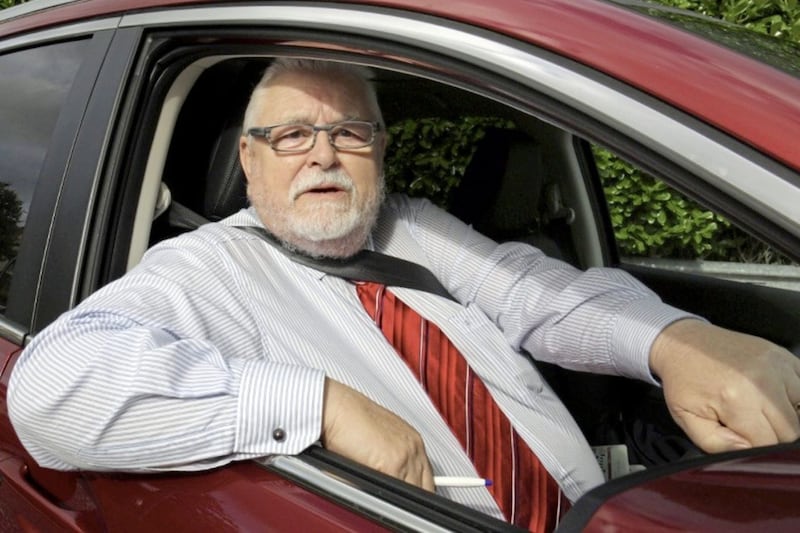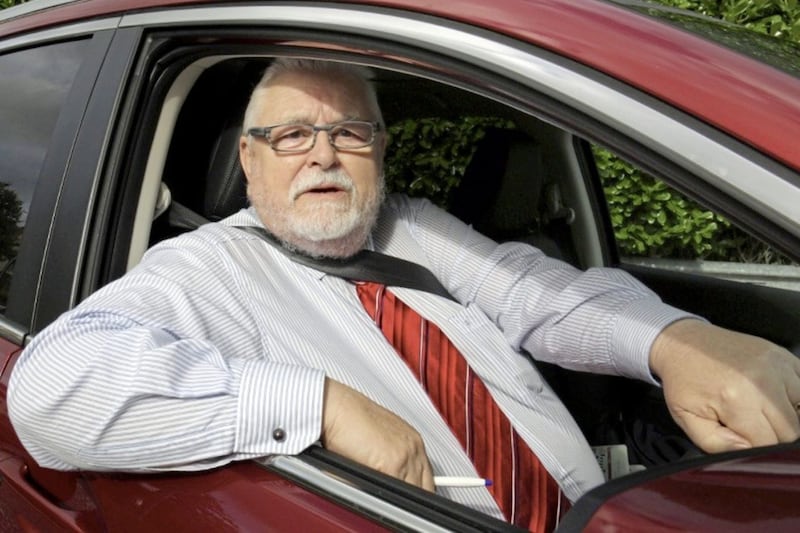Before the circuit breaker, I went for a walk with a friend who’s studying psychology. “It must be an interesting time for you,” I said, after we’d had a long discussion about US President Donald Trump and why he was refusing, against all evidence, to concede that he’d lost the election. "An interesting time” was certainly one way of looking at it, my friend said.
Interesting is a generous description of one of the most extraordinary interviews I heard last week.
On Thursday, a report recommended that former Ulster Unionist MP Ken Maginnis should be suspended from the Lords for at least 18 months for bullying and harassing three MPs and a security guard. A few days later, peers overwhelmingly voted to suspend Lord Maginnis. The suspension will be indefinite unless he agrees to take part in behaviour change training - which he has already insisted he will not.
The report from the Lords’ standards watchdog found the independent Ulster Unionist had used "homophobic and offensive" language about other MPs and had been "verbally abusive" to a security guard when asked to show his parliamentary pass in January.
The peer’s appearance on BBC Radio Ulster’s Talkback should have been the first stop in a long apology tour.
Instead, his astonishing performance memorably included no apologies, remorse or even any understanding of his own behaviour.
When asked to apologise to the security guard, he gave a long explanation about how he hadn’t forgotten his pass and blamed ill-health stemming from diabetes.
An interview he gave to the Huffington Post, shortly after the row in January, in which he described the security guard as a “little git” and a “jobsworth”, was dismissed as “whoever was interviewing me got me wound up”.
When repeatedly asked questions about his behaviour, the peer constantly deflected, blamed SNP MP Hannah Bardell for intervening in the row in the first place, or suggested that he was the victim of a witch-hunt for opposing gay marriage.
"I've held responsible positions all my life,” he said. “I'm 83 years of age. I'm not going to be dictated to in this way.”
Ms Bardell told Talkback Lord Maginnis's comments made "my blood run cold" and said she was subjected to death threats following the row.
But Lord Maginnis is by no means a lone voice in the non-apology stakes. An apparent inability to admit any wrongdoing runs across party lines.
Take former Labour leader Jeremy Corbyn. When the Equality and Human Rights Commission published a report into allegations of anti-semitism in his own party, Mr Corbyn was quick to blame his political rivals, even though the investigation found multiple instances of political interference by Mr Corbyn’s own office in dealing with complaints.
Rather than fully accept the report, he admitted there was an anti-semitism problem in the party but claimed it was "dramatically overstated” for political gain. It did beg the question, given the history of the 20th century, can you overstate anti-semitism?
Months before the report was published, one of Mr Corbyn’s close advisers, trade unionist Andrew Murray, sought to defend his boss against allegations of anti-semitism but managed to make things spectacularly worse.
According to Left Out: the Inside Story of Labour Under Corbyn, Mr Murray said Mr Corbyn “would have had massive empathy with the Jewish community in Britain in the 1930s and he would have been there at Cable Street, there’s no question. But, of course, the Jewish community today is relatively prosperous.” In other words, Mr Murray was suggesting the ex-Labour leader is sympathetic to Jewish people, so long as they are poor and it’s the 1930s.
Then there’s home secretary Priti Patel, who last month gave a masterclass in how not to apologise. After an official investigation found that she had bullied members of her own staff, she said: "I’m sorry that my behaviour has upset people and I’ve never intentionally set out to upset anyone.” Not ‘I’m sorry for my behaviour’ but ‘I’m sorry you feel that way’ which, in itself, isn’t an apology.
What is it that makes some people so loath to apologise for their own behaviour? Is there some fear that an apology can be perceived as weakness or a form of submission?
Really, the opposite is true. When a politician in particular fails to apologise for obvious wrongdoing, it makes them appear weak. Worse, it makes them seem to lack empathy for others.
This year, more than any other, has shown how closely human beings must rely on each other. Showing empathy, kindness, and admitting when you’re in the wrong is the very least we can do.









